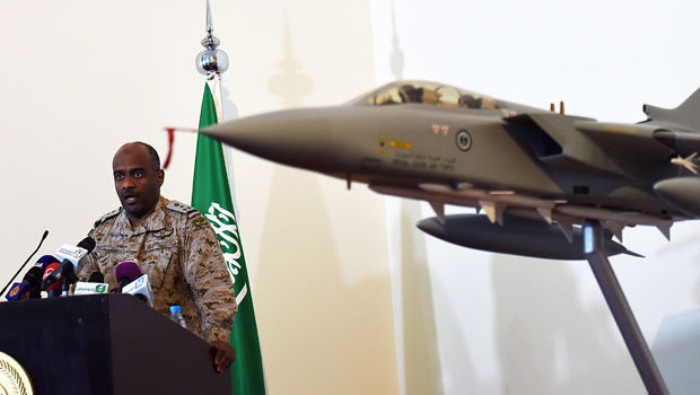Tensions Flare between Tehran and Riyadh in Syria

Multipartite negotiations of the recent months which saw the participation of Iran had created hopes for an end to the Syrian quagmire, or at least a clear, consensual plan to end the five years of violence that have taken the lives of 250 thousand Syrians and displaced millions. However, the bold decision by Saudi Arabia and Turkey announced a couple of days ago to send ground forces into Syrian territory shows how the path is still fraught with obstacles.
On February 13, Turkish FM Mevlut Cavusoglu raised the possibility of Ankara and Riyadh deploying troops to launch ground operations against IS, the so-called Islamic State, in Syria. The Incirlik military base, currently hosting US forces engaged in the Syrian war, may be groomed to host both air and ground forces of the Saudi Army, AFP reported Cavusoglu as saying. A few hours later, Brig. Gen. Ahmad Asiri of Saudi Arabia confirmed news that Saudi jets have been deployed in the Incirlik base. Qatar fighter jets were also scheduled to be based in Incirlik in September, a decision which seems to have been implemented, Iranian website Khabar Online quoted al-Khaleej Online. Qatar's decision has not been verified nonetheless.
Iranian military figures' response to Ankara and Riyadh was sharper than usual. Speaking to Mehr News, Chief of Staff of the Iranian Armed Forces Hassan Firouzabadi made light of Riyadh's recent decision to deploy ground troops in Syria in an unprecedentedly harsh tone. “Saudi Arabia should first gather those [alleged] 150 thousand troops, then train them how to march, inspect them, video-record these and prove to others that it has that number of forces in service. Then it could come and make such loud noises,” he said, reacting to an unverified, and hardly likely, news circulating in Iranian media about Riyadh's decision to send a 150k-strong troop to Syria.
Brigadier General Massoud Jazayeri, Deputy Chief of the Joint Staff followed the same line. “Terrorists fighting in Syria today are agents of Saudi Arabia, the US or regional reactionary forces” Jazayeri said. A senior commander of the Revolutionary Guards, Jazayeri, who was speaking to Iran’s state-run Arabic channel al-Alam, also called the Saudis' recently announced decisions “a political bluff and a psychological war”. Asked if Iran would increase the number of its military ‘advisors’ in Syria if Riyadh deployed troops, Jazayeri responded that Iran “will definitely not allow the situation in Syria to unfold in the way mischievous countries intend.”
Brig. Gen. Farzad Esmaeili, commander of the Iranian Army’s air defense base, also reacted to the news, announcing the army’s readiness to aid the Syrian government in defending its air space. “Any presence [by foreign countries] without approval of the Syrian government will bring nothing but failure and fiasco,” Esmaeili said in his interview with Tasnim news agency.
Iran’s diplomats also watch Riyadh and its regional maneuvers with suspicion. In his to-be-published interview with Khabar Online, Foreign Minister Javad Zarif stated that the Saudi government has not been interested in détente and welcomes tensions in relations with Tehran. “As much as we wanted to bring down the walls of Iranophobia, Saudi Arabia was eager to reinforce it,” he said. Zarif showed cynicism towards a shift in Tehran-Riyadh climate of relations when Saudi Arabia is not interested in solving problems. “It would have been like sealing a nuclear deal in negotiation with hardliner Republicans” in the United States, he said.

